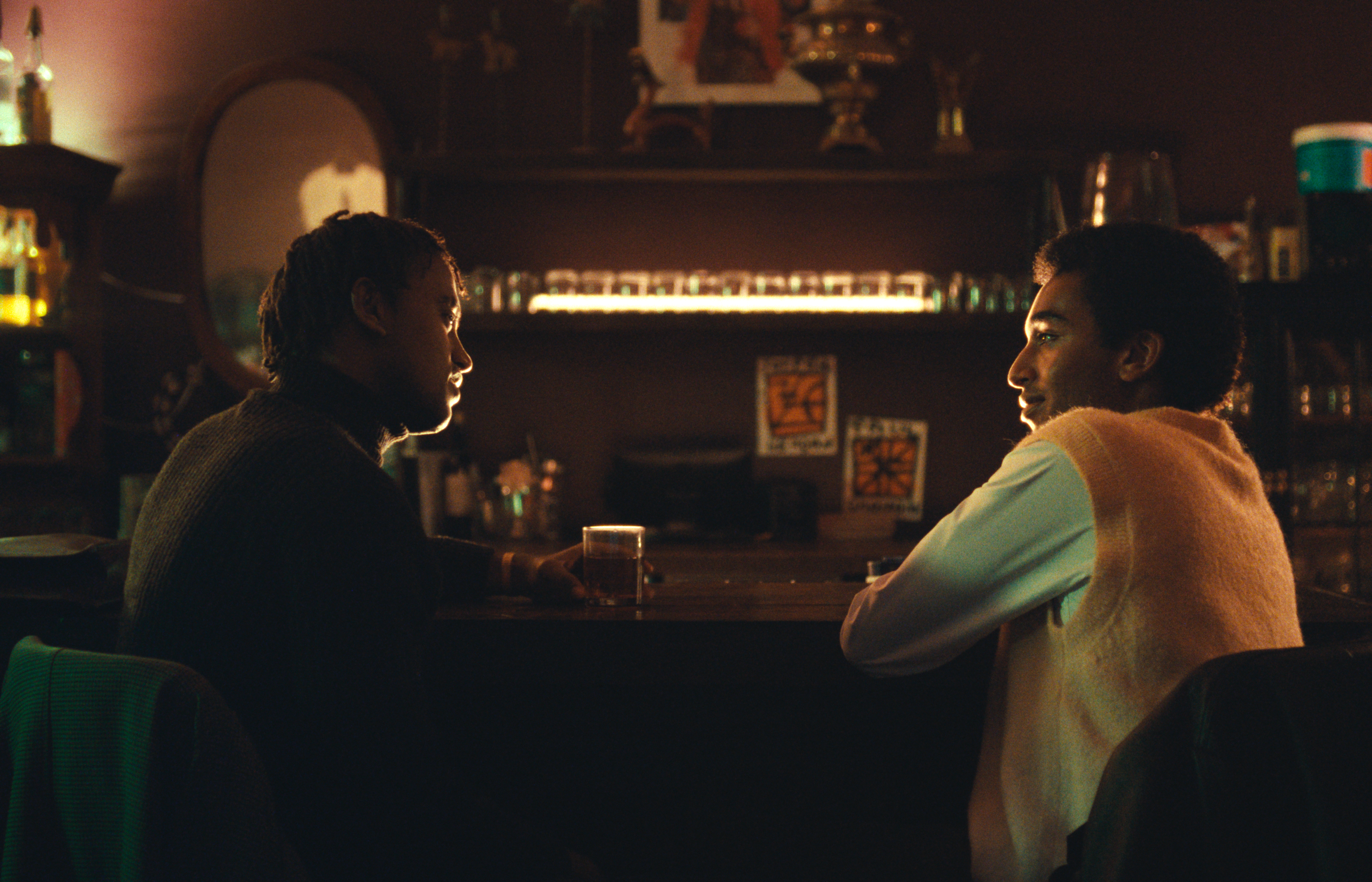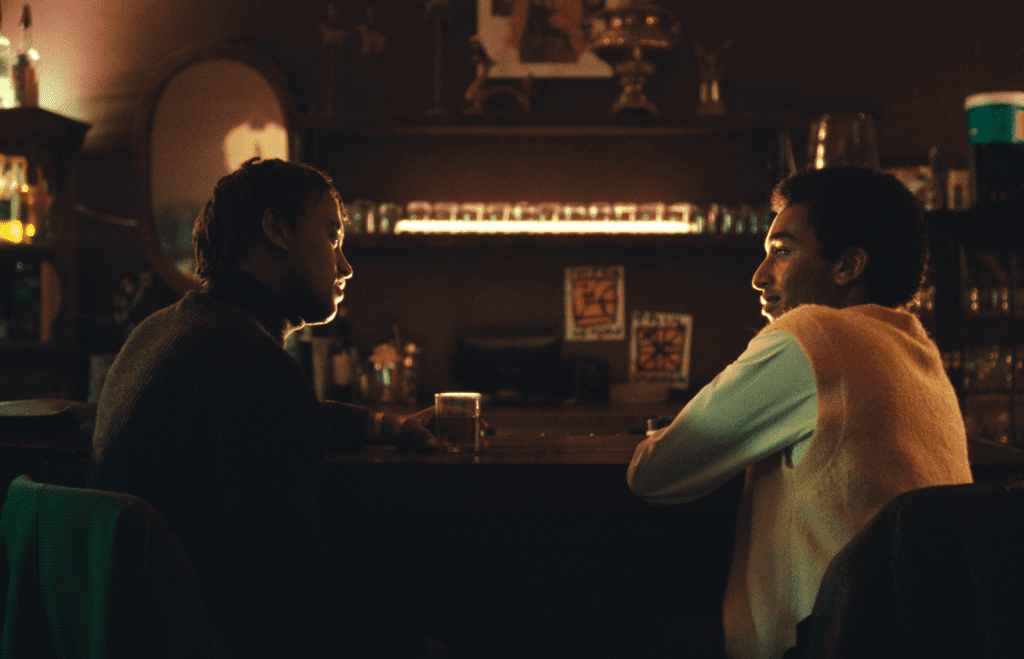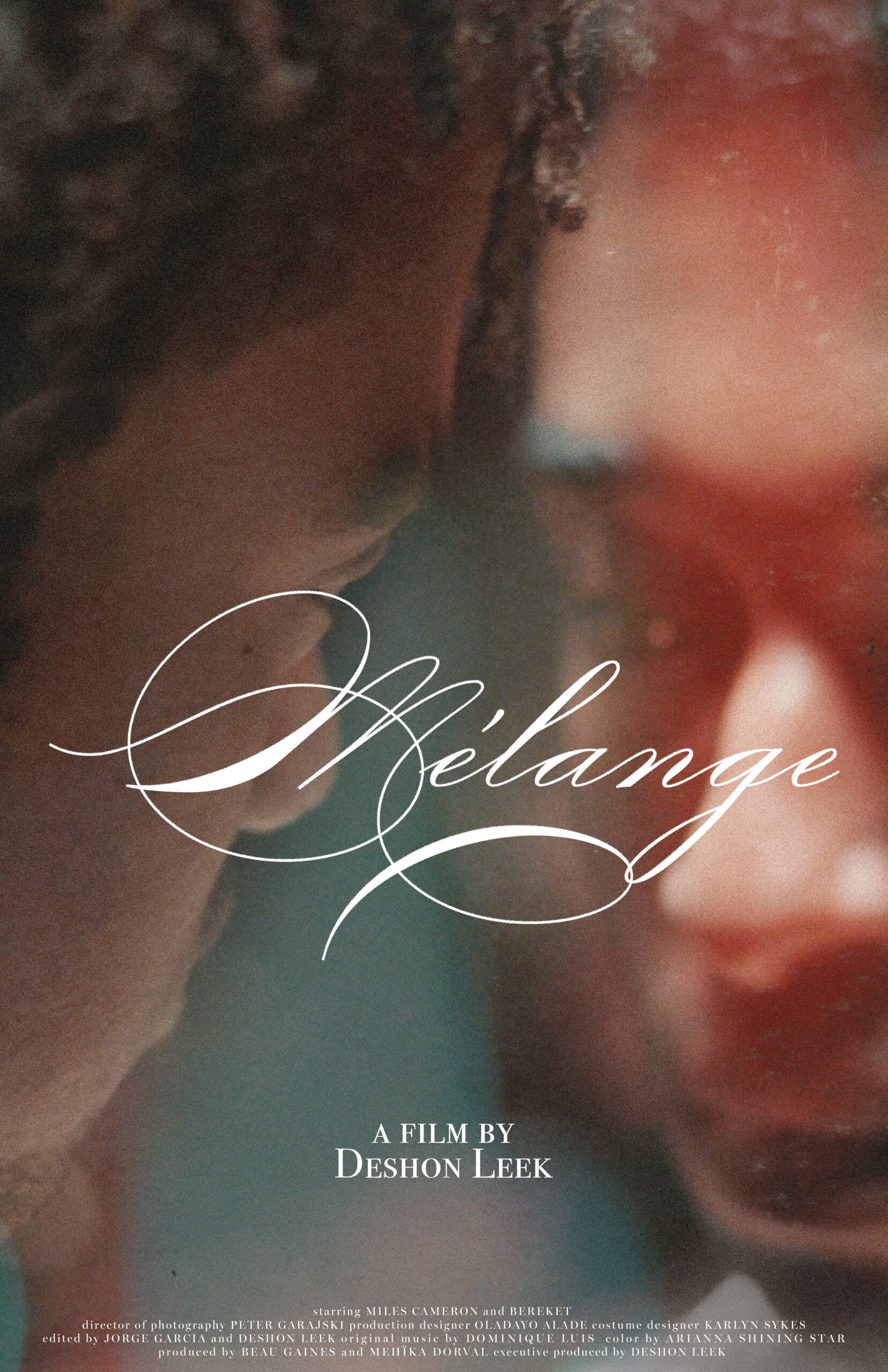
Mélange
爱在分手重聚时
德肖恩·利克 Deshon Leek
2024|爱情的模样 Love in Love
在彼此疏远一段时间后,两个男人在一个爵士乐酒吧重逢。当共舞勾起昔日之情时,这对旧爱侣试图避免承认他们亲密的过去。
Two men reconnect in a jazz bar after a period of estrangement. When sharing a dance stirs up old feelings, the pair attempts to avoid acknowledging their intimate past.
导演:德肖恩·利克
编剧:德肖恩·利克
主演:迈尔斯·卡梅隆、贝雷克特、J.R. 尤素夫
制片人:德肖恩·利克
摄影:彼得·加拉伊斯基
类型:剧情短片
时长:15分钟
完成时间:2024
对白语言:英语
地区:美国
制片公司:平衡影业有限责任公司
Director: Deshon Leek
Screenwriter: Deshon Leek
Cast: Miles Cameron, Bereket, J.R. Yussuf
Producer: Deshon Leek
Cinematographer: Peter Garajszki
Genre: Short Drama
Length: 15 min
Year: 2024
Dialogue: English
Region: USA
Production Company: Poised Pictures LLC
王泽 Wang Ze
德肖恩·利克是一位作家、导演,也是艾美奖的获奖制片人。他在莫尔豪斯学院获得电影学学士学位后迁往纽约市定居。德肖恩的作品常常侧重于挑战有关黑人男性气质、酷儿身份和心理健康的传统观念。2024年,德肖恩荣获了“焦点”媒体艺术基金的资助。
Deshon Leek is a writer, director, and Emmy award winning producer. He received his Bachelor’s degree in Film at Morehouse College before relocating to New York City. Deshon’s work often focuses on challenging conventional notions centered around black manhood, queer identity, and mental health. Deshon is a recipient of the 2024 En Foco Media Arts Fund.
导演阐述 Director’s Statement
我们应如何相爱?我们又应如何自爱?自我和控制真的能保护我们免受损失吗?当我们接受自己缺乏控制时,会发生什么呢?作为一名美国的黑人酷儿男性,我的身体不断地受到威胁。历史上,黑人以及酷儿男性的荧幕形象往往被刻画为与暴力、性爱和传统男性气概相关。幸运的是,我的作品挑战有关黑人男性气质和酷儿身份的传统观念,同时为心理健康议题去污名化,从而打破现状。我珍视电影媒介,因为它具有重新构想黑人和酷儿身份的力量。通过电影院,我致力于疗愈黑人跨代际的创伤,也致力于为酷儿、跨性别、黑人、原住民与有色人种群体提供一个能够自由地、不被羞辱地爱与被爱的空间。
《爱在分手重聚时》是对亲密结合的恐惧和欲望的一次探索。通过这部电影,我希望推动关于黑人和多元性别群体中对于亲密关系紧迫性的讨论。
How do we love each other? How do we love ourselves? Does the ego and control really protect us from loss? What happens when we accept our lack of control? As a Black queer man in America, there is a constant threat against my body. Historically, representations of Black and queer men on screen have often depicted violence, sex, and traditional masculinity. Fortunately, my work disrupts the status quo by challenging conventional notions centered around black manhood and queer identity, while destigmatizing mental health. I value the medium of film because of its power to reimagine Black and queer identities. Through cinema, I am committed to healing Black intergenerational traumas and providing QTBIPOC with the space to be in love, and to be loved, freely and without shame.
Mélange is an exploration of fear and desire for intimacy uniting. With this film, I’d like to encourage conversation around the urgency for intimacy in Black and LGBTQIA+ communities.





